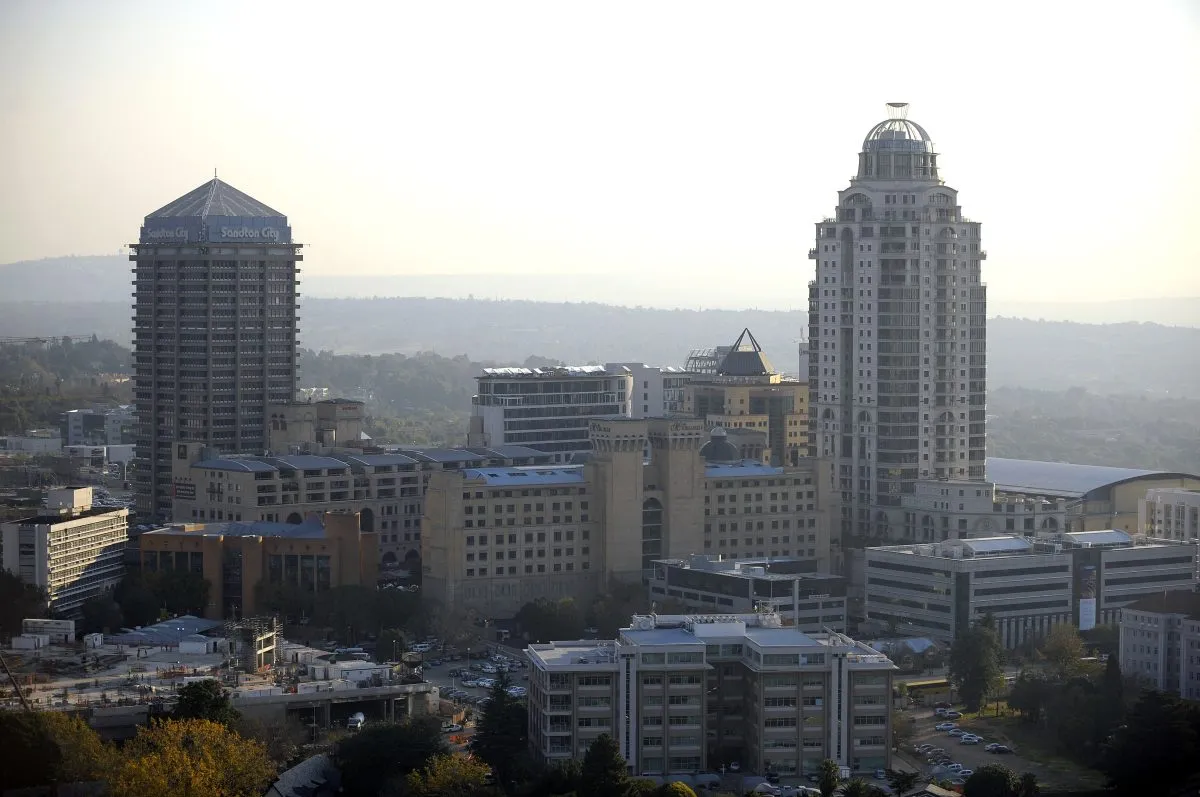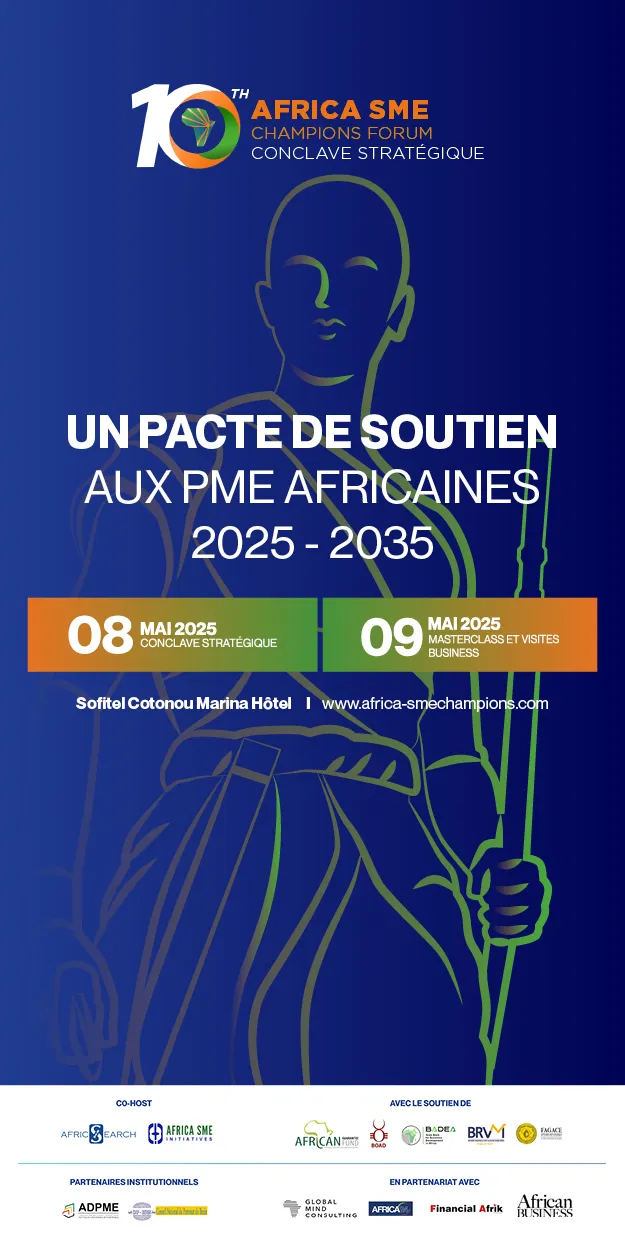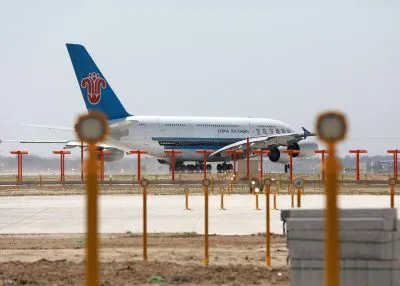This year has seen a partial recovery in the value of Africa’s biggest companies – but market capitalisations are still a lot lower than they were a decade ago (see below for full list).
The fluctuating value of African currencies is partly to blame, as is the retreat of international investors from frontier markets because of uncertainty stemming first from the Covid-19 pandemic, then from the Russian invasion of Ukraine and now the ongoing trade war. As ever, within this overall picture some companies have done a lot better than others.
Africa’s 250 biggest companies had a total market capitalisation of $564bn at the end of March 2025, which was a significant increase on the $503bn listed at the same time last year but is still very low by historic standards. A peak of $948bn was achieved in 2015; the overall trend since then has been largely downwards despite the continent’s rapidly growing population and undoubted economic potential. This year’s figure is even lower than the $597bn recorded in March 2020 at the height of the Covid pandemic. There are other reasons, including the delisting of some major multinationals from African exchanges.
The top ten in our 2025 rankings have a very familiar feel to them. Naspers remains the continent’s biggest company with a market capitalisation of $40.3bn, up from $31.9bn last year but still well down on the $80.8bn recorded in 2023 and $104.2bn in 2021. The firm’s wildly fluctuating market value is largely caused by changes in the fortunes of one of its main assets, its 25% stake in Hong Kong-listed tech and entertainment company Tencent. Naspers operations, which are today relatively limited within South Africa, stretch from technology and venture capital to publishing and multimedia.
Naspers’ original $32m investment in Tencent was worth $115bn late last year, in what was perhaps the best deal ever in African corporate history. Fabricio Bloisi, the company’s new CEO, is, however, keen to widen the company’s interests by identifying the next Tencent that he hopes will double the parent firm’s value within ten years. He has pledged to link employee rewards more closely to results and to take more risks.
In December Bloisi said: “Innovation and reinvention are in our DNA and essential to our success. We are embracing the massive opportunity we see in deploying AI to deliver exceptional products and services to our 2bn customers… We are already showing signs of success, with peer-leading growth and rising profitability across our ecommerce portfolio.”
Naspers is followed in our rankings by another five South African companies, including three banks: FirstRand, Standard Bank Group and Capitec Bank. It is still worth almost twice as much as the second-placed FirstRand, which had a value of $21.9bn at the end of March. Capitec has enjoyed a particularly big increase in market capitalisation, from $12.8bn to $19.5bn over the past year, but still slightly lags miner Gold Fields, which is growing strongly as investors seek shelter from global economic uncertainty in gold.
Despite long-term stagnation in the domestic economy, South African companies fill 16 of the ranking positions in the Top 20, with Moroccan firms taking two of the other four, showing that African corporate strength remains very patchy. The performance of large Nigerian companies is particularly disappointing given the size both of Africa’s biggest market and of its natural resources, but currency devaluation has much to do with this year’s poor results.
Strength in depth
The significant recovery in market values recorded at the top of our table is mirrored further down the rankings. Coal firm Thungela Resources took 100th position with $904m in 2024, but fellow South African firm, Spar Group, which operates in the wholesale distribution sector, needed $1,238m to secure the same position this year. Similarly, Zambia National Commercial Bank needed $334m this year to take the 250th and final place in our table, a big increase on the $239m Bank of Africa Côte d’Ivoire recorded to take the same position last year. However, this threshold must continue to increase over the next few years to regain the $394m level required to take the same spot as recently as 2018.
Our Top 250 African Companies survey includes firms listed on African stock exchanges but excludes some of the biggest companies operating on the continent because they are foreign enterprises listed elsewhere in the world, or state-owned companies. The latter include some of Africa’s biggest oil and gas companies, such as Angola’s Sonangol and Sonatrach of Algeria, both of which would certainly be ranked at or near the top if they were listed. The government of Angola plans an initial public offering for 30% equity in Sonangol, which would see it included in our rankings, although this has been repeatedly delayed.
South Africa still dominates
As ever, South Africa’s continued dominance is reflected in the regional breakdown of the total market value of our table. South African companies account for a massive 60% of the entire market capitalisation of our Top 250 African Companies this year, roughly the same proportion as last year. The continued dominance of South African firms is despite ongoing stagnation in the South African economy, which grew by an average of just 0.66% in the decade to 2023, according to World Bank figures. However, the country’s banks and some of its other large corporations have had significant success in growing in other parts of the African continent and indeed further afield.
The rest of Southern Africa takes 4.35%, with Malawi perhaps surprisingly strong here, taking 1.44% of the continental total, more than Tanzania, Uganda, Tunisia or Ghana. West Africa accounts for 9% and North Africa 22%, while Central Africa is again without representation. Year after year, the region fails to feature in our table, despite the presence of the Democratic Republic of Congo and Cameroon among the continent’s 15 biggest economies.
While Central Africa as a whole is an important source of oil, gas and mining commodities and other raw materials, each sector is dominated by state owned companies or large foreign firms. There is some diversification in Cameroon but few large private sector companies have emerged, emphasising the lack of linkages between raw material production and the wider economy.
The standout figure here is East Africa with just 3.5% of the value of the Top 250, virtually the same as in last year’s rankings. Despite containing some of the continent’s fastest-growing economies over the past decade in the form of Ethiopia, Kenya, Tanzania, Uganda and Rwanda, the region still punches well below its weight in terms of listed companies. It will be interesting to see whether the launch of the new East African regional stock exchange index has an impact on driving up interest in East African equities.
On a national basis, Morocco ranks second behind South Africa in terms of the combined value of its companies within our Top 250, with 15%, followed by Nigeria with 7% – a big fall on the 7.8% recorded last year and well short of its 15.4% share of the African population – and Egypt, with 6%.
Ethiopia is perhaps the most startling absentee from both our Top 250 and the regional tables. If our Top 250 ranking were distributed in line with population, Ethiopia would have 26 companies in the table. Yet despite being the fastest-growing African economy – and the third fastest globally – over the past 20 years, not a single Ethiopian company makes either our Top 250 or regional Top 20 tables, although the government has gradually taken steps to loosen its grip on the economy over the past three years.
The government has tightly controlled many parts of the economy but is now opening them up to private sector and foreign competition. The telecoms and financial services sectors are attracting particular interest, while the country’s growing hydroelectric production is attracting data centres, but it may be many years before Ethiopian companies fill our table in the numbers that the country’s 135m population would justify.
Sector breakdown
Banks are particularly well represented in our table, with regional banks accounting for 18% of the total value of the Top 250 and major banks another 8%. Indeed, five of the six biggest listed companies in Africa are banks, with top-ranked Naspers the only exception in the higher echelons of our rankings. The banking sector is one of the biggest engines of private sector innovation on the continent, with digital services introduced by both established banks and the thriving start-up ecosystem. At the same time, insurance companies account for a total of 5% of the value of the Top 250.
The telecoms sector is the other great African private sector success story over the past quarter of a century. Private mobile telecoms companies quickly overtook established fixed-line operators across the continent, building the infrastructure to develop modern telecoms networks in almost every country. Vodacom and MTN of South Africa plus Morocco’s Maroc Telecom are ranked 7th, 8th and 9th in our table, and the sector’s biggest listed companies now represent 11% of the total value of our Top 250.
The importance of the mining sector is highlighted by the fact that non-precious metals and minerals producers account for 5.5% of our table; but too small a proportion of mining products are processed within Africa, meaning that the continent misses out on much-needed value added activity. As well as processing, the manufacturing sector remains enormously underrepresented in our table as the continent continues to fail to secure a significant share of global factory outsourcing.
Record gold price
The rising price of gold over the past year has had a big impact on the values of precious metals miners in our Top 250. The market capitalisation of South Africa’s Gold Fields has increased from $14.3bn to $19.7bn over the past year, making it the biggest listed mining company on the continent. AngloGold Ashanti moves up from 11th to 6th as its value doubles in just a single year from $9.3bn to $18.7bn, while Harmony Gold Mining has also enjoyed a big rise from $5.2bn to $9.2bn, moving it up from 24th to 13th in our table.
Gold prices jumped 27% over 2024, with prices hitting a record $3,350 per ounce in late April as a result of uncertainty over US President Donald Trump’s new trade tariffs and the ongoing trade war. Goldman Sachs is forecasting a price of $3,700 per ounce for the end of this year. With tariffs being imposed and then retracted or renegotiated on a regular basis, many investors are turning to the security of gold.
Gold Fields reported a 42% rise in profits for 2024 to $1.2bn, despite a 10% fall in output. However, in April the company announced that it would end production at its Damang mine in Ghana, which accounted for 6% of the company’s output of 2.15m ounces in 2024, after the government rejected its application to extend the lease. It will instead focus on its Canadian Windfall project and the Salares Norte mine in Chile, while continuing to operate its larger gold project in Ghana, the Tarkwa mine. It continues to operate in South Africa’s Witwatersrand Basin.
CEO Mike Fraser has also revealed that Gold Fields may consider a share buyback programme if gold prices remain high. South African gold mining is becoming gradually more difficult as mines go ever deeper to remain productive, bringing increased costs and more technical challenges.
Harmony Gold Mining is using its increased revenues to help finance its wholly-owned Eva copper project in Queensland, Australia, as it diversifies into copper. Investment in excess of $600m will result in output of up to 60,000 tons a year from 2029 and is supported by a 33% rise in six-month profits to R7.9bn ($419m) for the period to the end of 2024.
It is also developing the Walfi Golpu gold and copper project in Papua New Guinea with the US Newmont Corporation. Finance director Boipelo Lekubo revealed that the company had about $1bn in net cash and available financing to fund new projects.
=====================
Methodology – who we include in the ranking
The African Business Top 250 Companies survey focuses on the biggest listed companies, with the ranking determined by the market capitalisation (total value of the listed shares) at 31 March 2025. The market capitalisation is converted into US dollars on the same date.
Some of the African giants not in the Top 250 ranking are government-owned companies, including state-owned enterprises such as Commercial Bank of Ethiopia and Sonangol in Angola. Back in 2022, following negotiations with the IMF, Egypt again promised privatisations of state- and military-owned companies; in December 2024 Ethiopia’s parliament passed legislation enabling foreign banks to enter the country’s hitherto closed financial sector. Many of the 400 or so companies in Africa with revenues in excess of $1bn are not included because they still remain in private hands. This includes the Madagascan group Axian for example.
The Top 250 survey excludes companies that have African heritage and roots but no longer earn at least 50% of their revenues in Africa. One significant example is Prosus, which emerged as Europe’s largest listed consumer internet company when it became an entity independent from its parent, South Africa’s Naspers. It listed on Euronext Amsterdam and the JSE in September 2019.
Companies with more than 50% of their revenues from Africa are excluded if they are not listed on an African stock exchange.
Several very large mining companies are also excluded because they are not listed on an African stock exchange. One example is London-listed Endeavour Mining, a gold miner in Senegal, Côte d’Ivoire and Burkina Faso. Another is Canada’s Ivanhoe Mines, whose flagship Kamoa-Kakula project in the Democratic Republic of Congo could expand to become the world’s biggest copper mine; it also has zinc and platinum projects.
The ranking also excludes the handful of African “unicorns” – tech startups that reach a $1bn dollar market value, but are usually not yet listed on any stock exchange. It omits real estate investment trusts and finance companies, because of the way they manage funds for unit holders. If, however, a company develops properties, then it can remain in the ranking, as does Travaux Généraux de Construction de Casablanca (TGC).
Want to continue reading? Subscribe today.
You've read all your free articles for this month! Subscribe now to enjoy full access to our content.
Digital Monthly
£8.00 / month
Receive full unlimited access to our articles, opinions, podcasts and more.
Digital Yearly
£70.00 / year
Our best value offer - save £26 and gain access to all of our digital content for an entire year!


 Sign in with Google
Sign in with Google 






